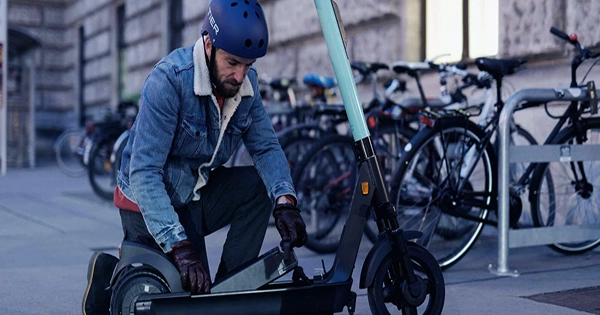The term “shared micromobility” conjures up images of the Lime e-bike parked on the corner or the Voi e-scooter parked next to the bus stop, both of which may be standing erect or toppled over onto the pavement on any given day. Dockless vehicles have become so commonplace that they’re almost interchangeable with the concepts of scooter and bike sharing. This could be changing. Acton, a U.S. startup that provides electric micromobility vehicles and cloud-based software infrastructure for cities and operators to run shared fleets, has just acquired Duckt, an Estonian docking and charging infrastructure startup, in a move that Acton claims will help it beef up its product offerings, particularly for cities.
The company, which has partnered with hundreds of cities and shared operators around the world, wants to provide customers with a more comprehensive end-to-end experience. It sees an opportunity to bring some order to the chaos of today’s dockless vehicles and recoup some of the costs associated with finding and charging vehicles in the wild. “More cities are genuinely striving to arrange things better,” Janelle Wang, co-founder, and CEO of Acton, told TechCrunch. “It’s not just about charging, but also about parking.”
“The free-floating cars are fantastic, but they will need to be organized at some time.” If we’re talking about a 15-minute city like Paris or Berlin, where there will be a no-car zone in the city center, micromobility vehicles must be in the center, such as at a station, but also free-floating.” While the bulk of Acton’s customers is shared operators, the firm is making a stronger push for government clients with the acquisition of Ducks, positioning itself as a company that can provide cities with a novel method to integrate shared micromobility.
The convenience of using Duckt docking stations is that they can charge practically any scooter or bike, whether it’s a privately owned vehicle or one operated by a larger operator. The idea, according to Wang, is to provide enough value that some of the game’s bigger players will sign on to utilize Acton’s docking stations as well. Acton, which counts Buyk, a 15-minute grocery delivery startup, as one of its customers, sees providing vehicles or fleets for gig workers or delivery firms as a developing market and an additional B2B play.
Until then, the objective is to find a way to solve the problem of too many scooters and bikes crowding the sidewalks, which necessitates appealing to cities. Since March of last year, Duckt, now Acton, has been working with Paris on a trial project to build 150 dock and charge points that can be linked into bus stops and street lighting for power. Acton is also working on a project along the Hudson River in New York, where it will provide the city with everything from a fleet of cars to a software platform to manage the fleet to charging and docking stations.
According to Wang, Acton has completed similar deployments in cities such as Ankara and San Francisco, with plans for future operations in Miami, Athens, Cape Town, Mallorca, and Barcelona. Swiftmile, which has done pilots with Spin, and PBSC Urban Solutions, which has a huge docking presence with noteworthy clients like Citibike, are two more companies that have popped up with docking and charging stations throughout the years.
But just because there are fewer players and less VC money in the docked game doesn’t imply there isn’t a large market opportunity for docking and charging e-bikes and e-scooters. Despite the apparent commercial domination of dockless micromobility, according to the North American Bikeshare and Scooter Association’s state of the industry report, 56 percent of bike-share services in North America in 2020 will be docked, while just 19 percent will be dockless. None of the e-scooter shares were docked, which tells more about the lack of e-scooter docking and charging technology than it does about potential market share.
The biggest geographical market right now, according to Wang, is Europe, where there is more discussion about making cities walkable and pedestrian-friendly and drastically lowering dependency on automobiles. Part of that urban planning may include where docked micromobility stations will be located, and Acton’s backer, EIT InnoEnergy, can assist the firm as it seeks to establish links and expand its reach throughout Europe. The merger was powered by an undisclosed investment from the early-stage investor, which specializes in energy transition, electric vehicles, and grid technologies and is funded by the European Institute of Innovation and Technology, a body of the European Union.
In a statement, Jennifer Dungs, EIT InnoEnergy’s worldwide head of mobility, said, “The Acton and Duckt merger makes for an ideal growth story.” “Together, they have it all: well-designed, high-quality vehicles, cost-effective operations software, broadly compatible charging and docking stations, as well as the knowledge and capacity to roll out on a massive scale.” It doesn’t get much better than this for any city or company trying to integrate an off-the-shelf micromobility solution into their transportation portfolio.”















